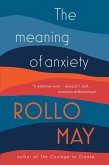In "The Foundations of Normal and Abnormal Psychology," Boris Sidis offers a groundbreaking exploration of psychological principles, meticulously examining the boundaries between typical and atypical behaviors. This work, characterized by its scientific rigor and theoretical depth, seamlessly integrates empirical data with philosophical insights, reflecting Sidis's commitment to a comprehensive understanding of the human mind. Within the broader literary context of early 20th-century psychology, Sidis'Äôs text emerges as a critical bridge between classical psychological theories and emerging modern perspectives, establishing a foundational discourse on mental health that remains relevant today. Boris Sidis, an influential psychologist and a pioneer in studying consciousness, was profoundly impacted by the cultural and scientific milieu of his time. His diverse academic background, encompassing philosophy, physiology, and education, undoubtedly shaped his approach to psychological inquiry. Sidis was instrumental in challenging prevailing notions of mental illness, advocating for a more nuanced and compassionate understanding of psychological phenomena, experiences he detailed using case studies and experimental findings throughout this seminal work. This book is essential reading for students, scholars, and practitioners of psychology interested in understanding the multidimensional nature of the psyche. Sidis'Äôs insights encourage a deeper appreciation of both normal and abnormal behaviors, making it a valuable resource for anyone seeking to navigate the complexities of human psychology.
Dieser Download kann aus rechtlichen Gründen nur mit Rechnungsadresse in A, B, BG, CY, CZ, D, DK, EW, E, FIN, F, GR, H, IRL, I, LT, L, LR, M, NL, PL, P, R, S, SLO, SK ausgeliefert werden.









